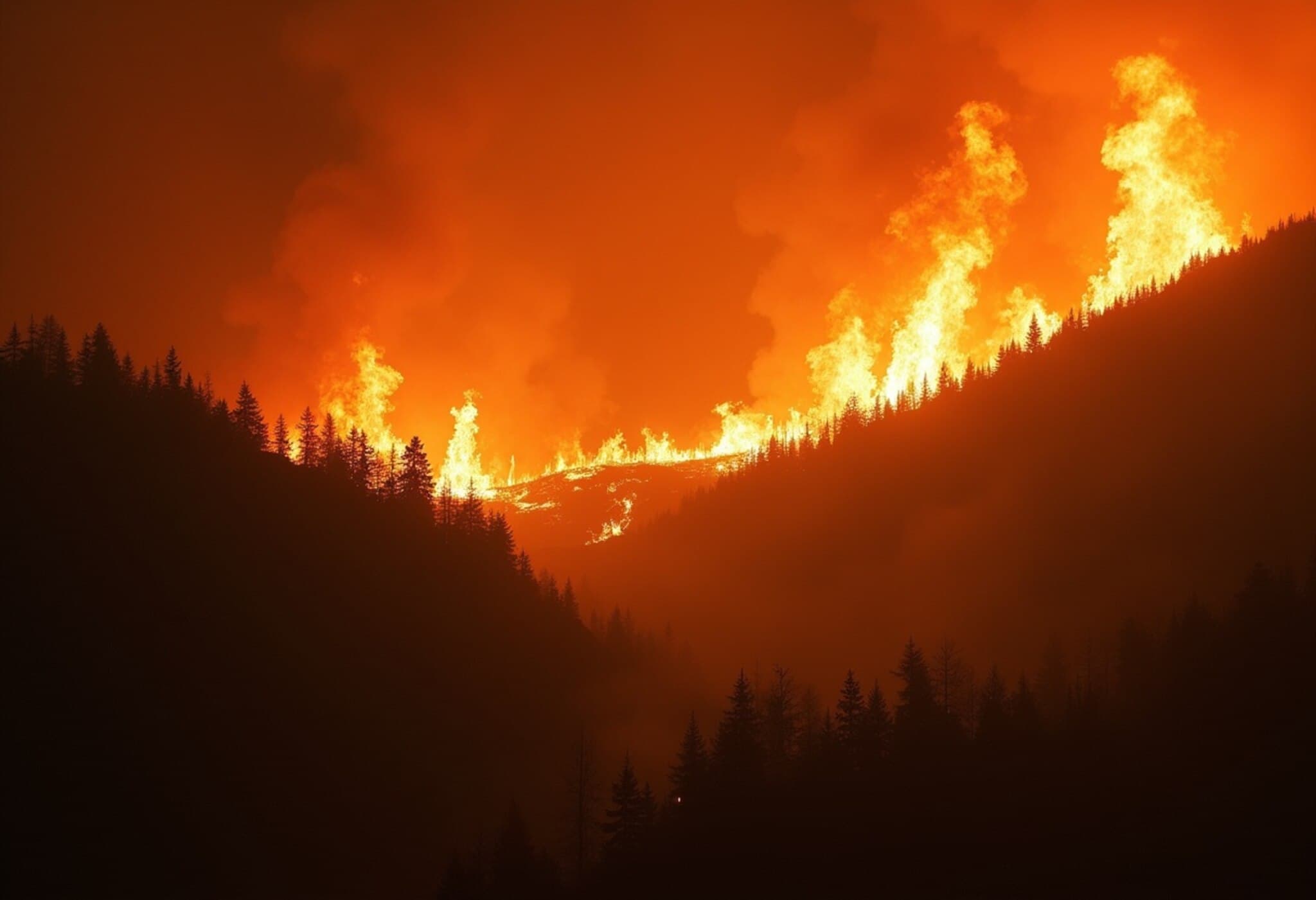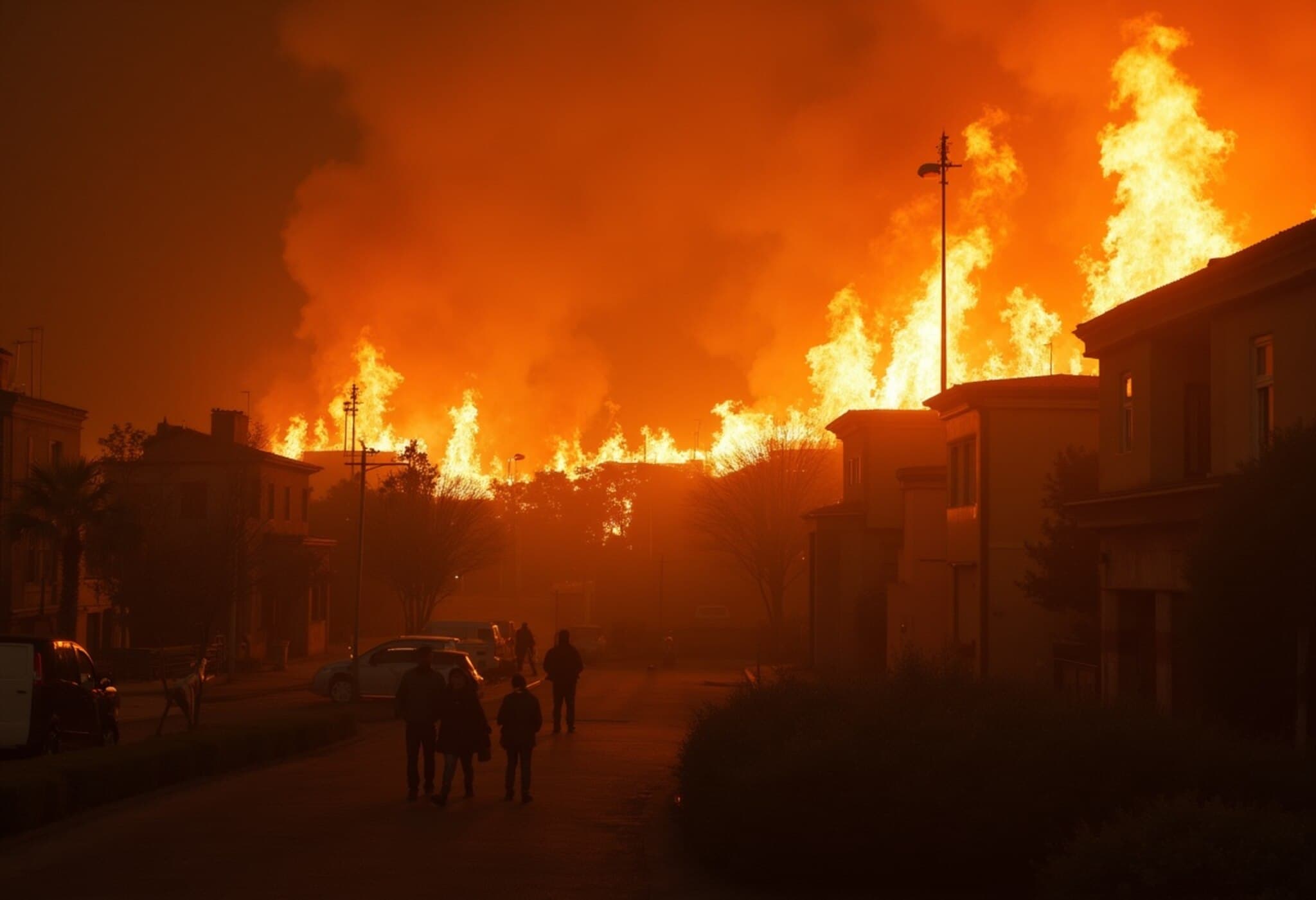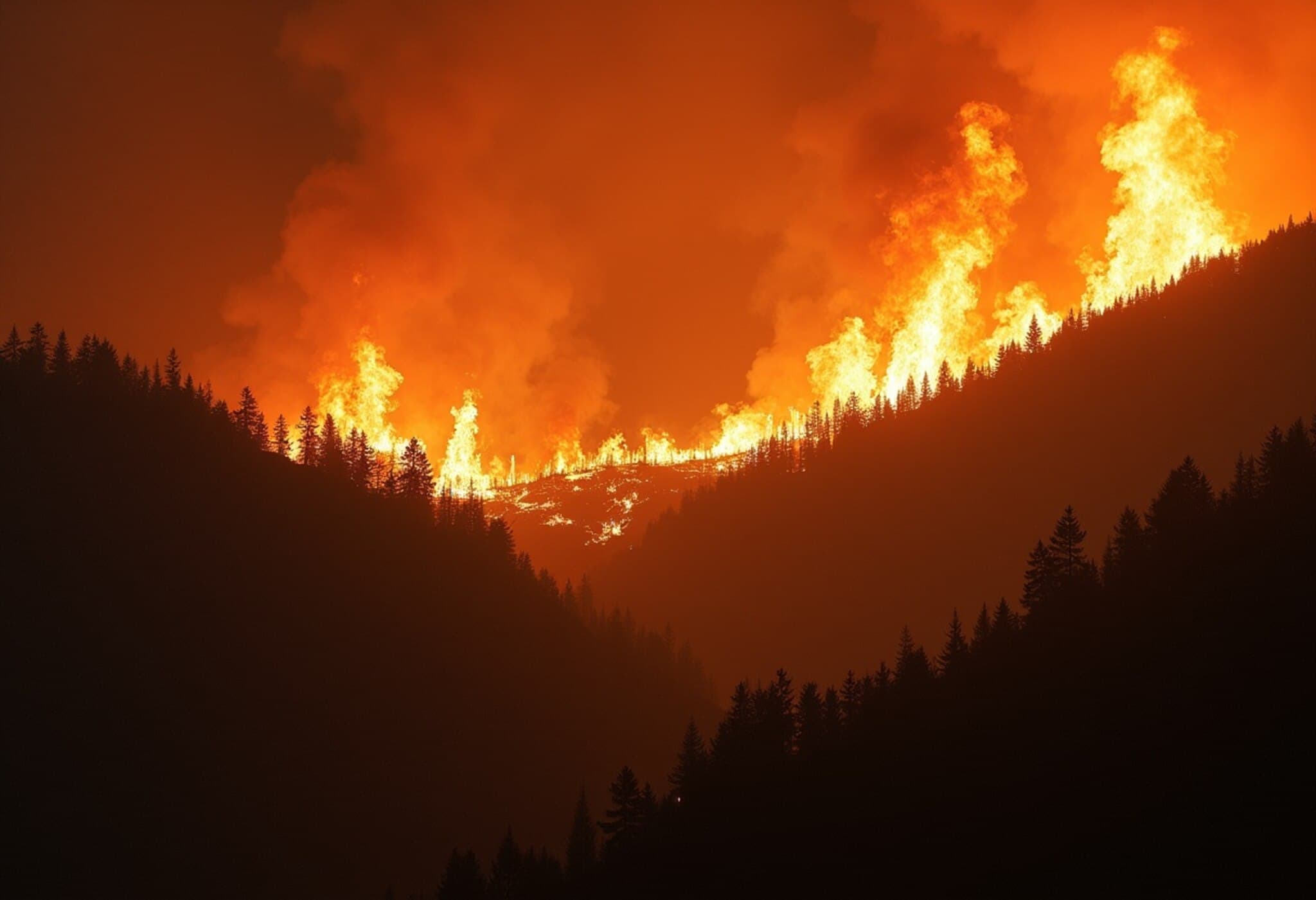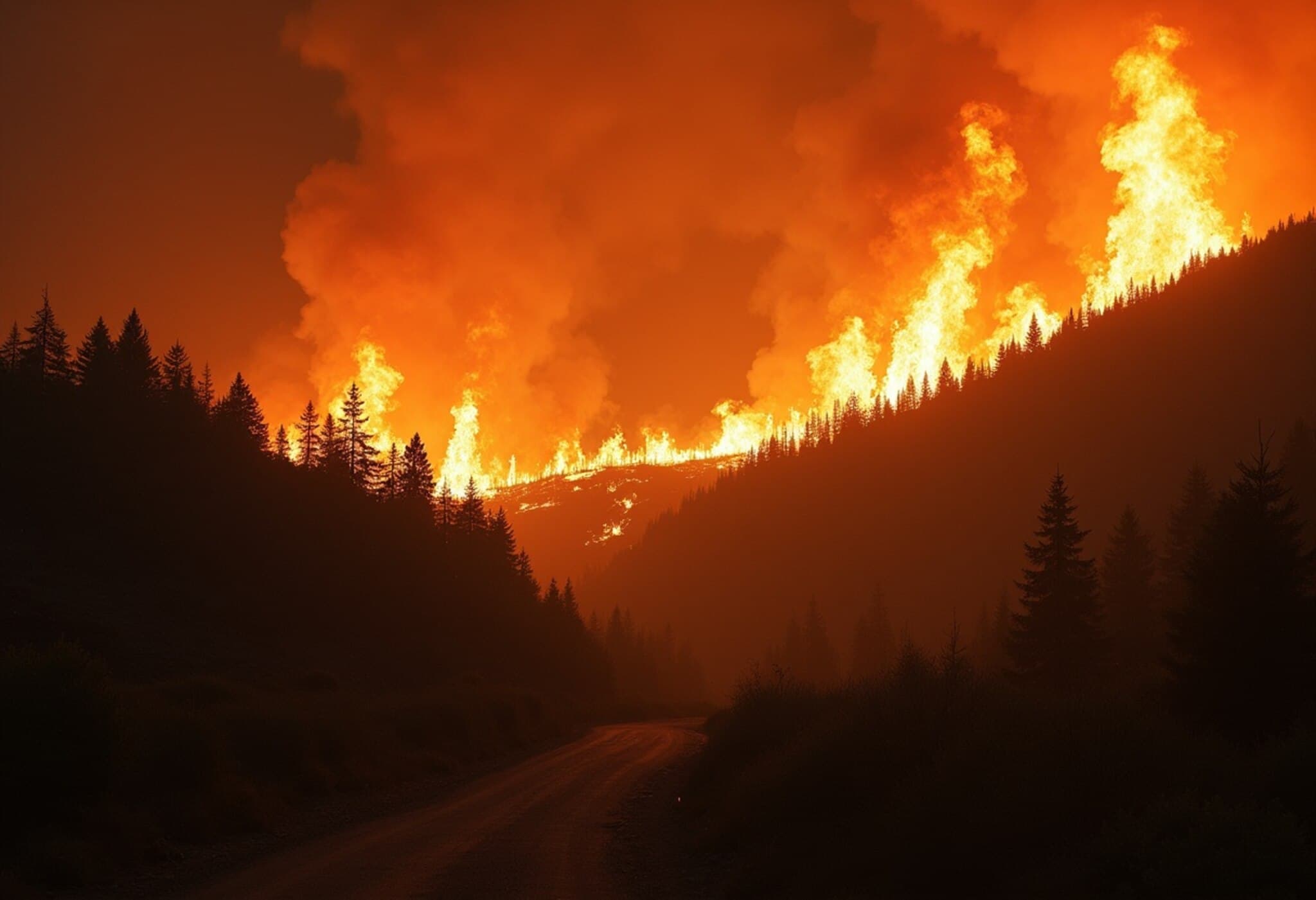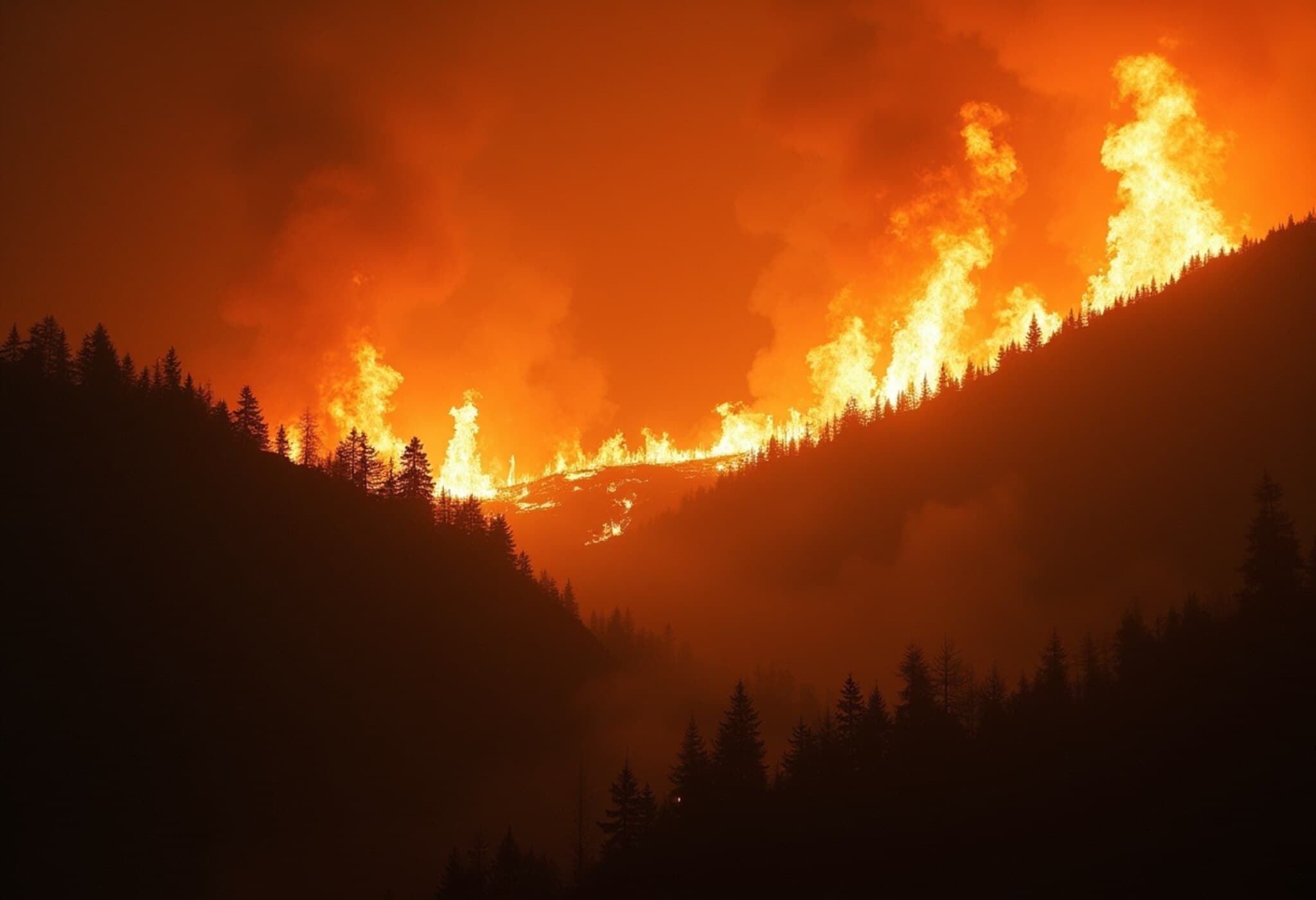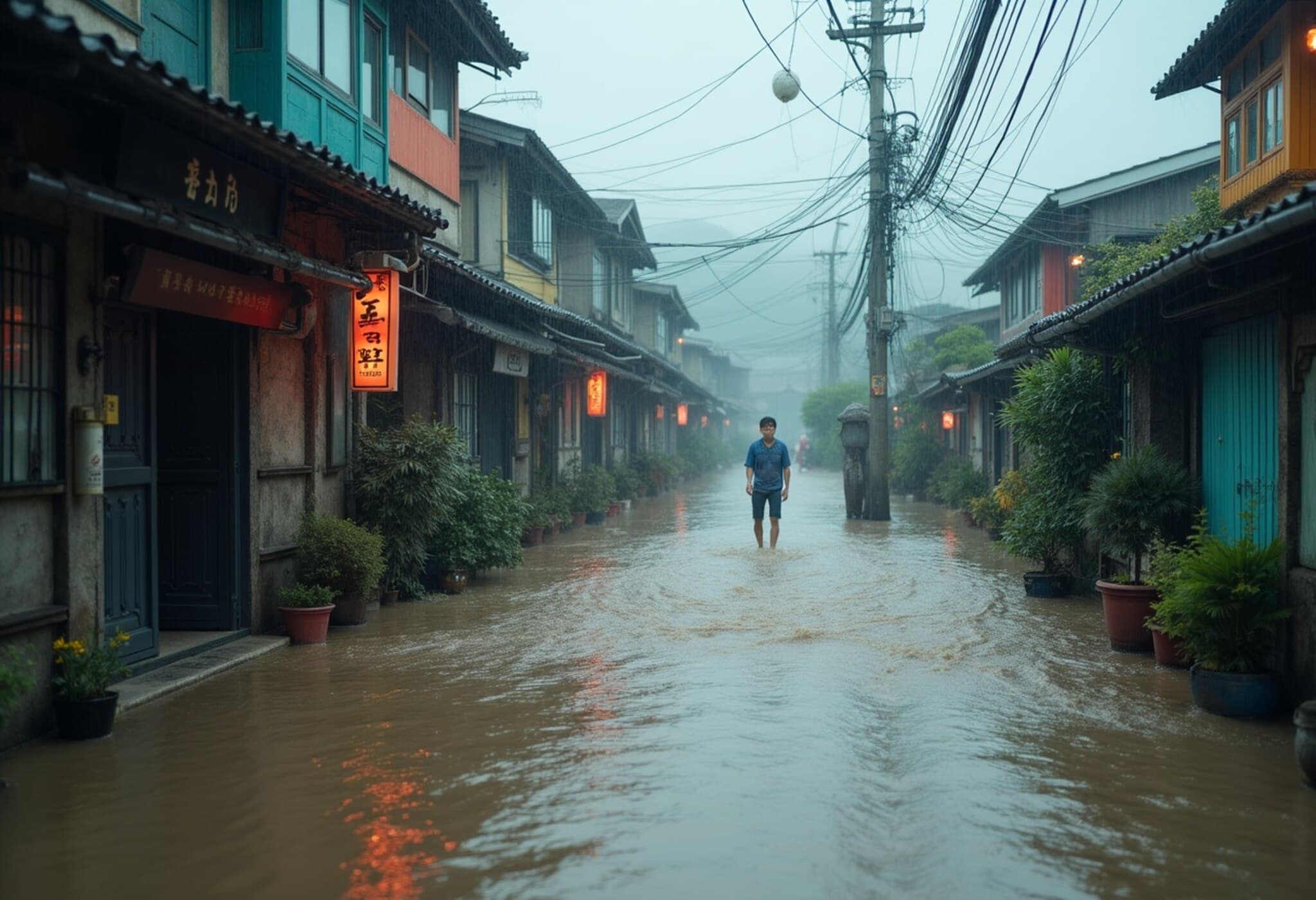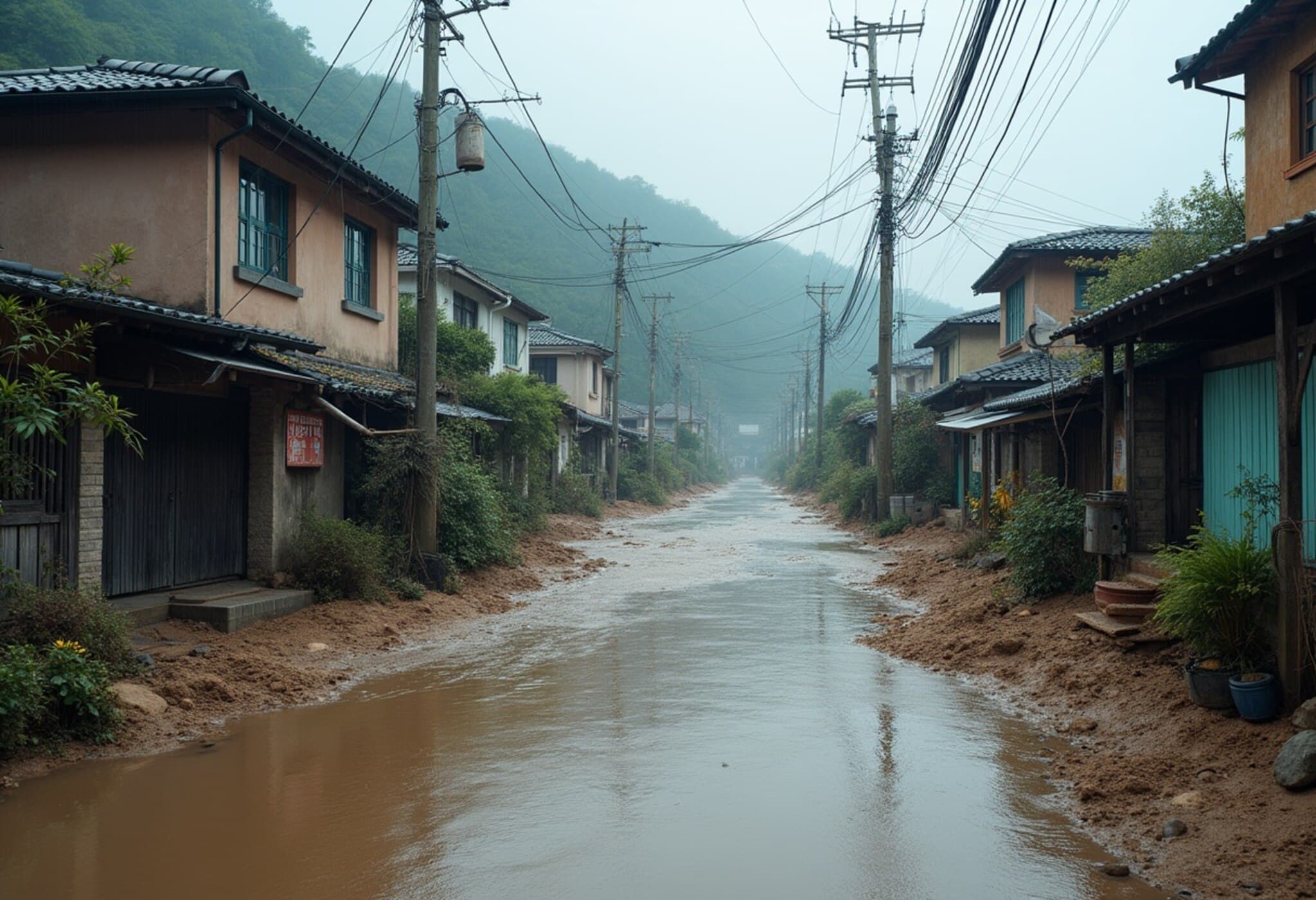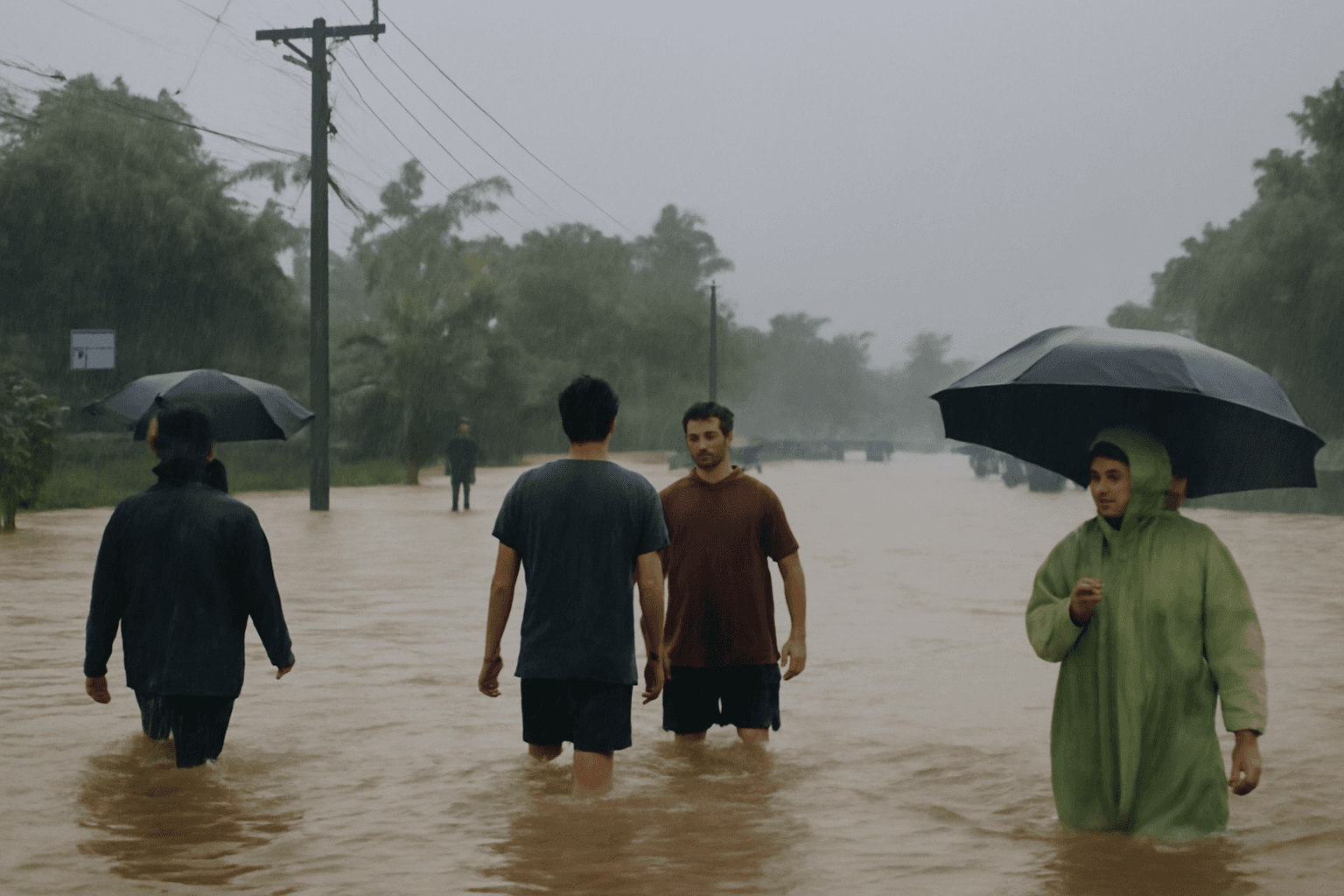Turkey Struggles Against Widespread Wildfires as Extreme Heat Persists
As Turkey reels under an intense Mediterranean heatwave, firefighters are locked in a fierce battle against multiple wildfires raging across the country. Over 3,600 residents have been evacuated from vulnerable settlements in several provinces, highlighting the escalating climate crisis impacting the region.
Outbreak and Spread of Fires
The wildfires erupted primarily in southern Turkey’s Mersin and Antalya provinces, and the central area of Usak, where officials have largely brought the flames under control. However, the situation remains critical in the northwestern province of Bursa and the northern province of Karabuk, where blazes continue to challenge firefighting efforts.
A significant fire broke out on July 26 in the forested region between the Gursu and Kestel districts of Bursa — an area vital to Turkey’s thriving automobile industry. This fire caused the temporary shutdown of a major highway connecting Istanbul to İzmir, disrupting transportation and supply chains.
Evacuations and Firefighting Efforts
- Approximately 1,765 people were evacuated from the Kestel district near Bursa as flames threatened nearby residential zones.
- In Karabuk, after five consecutive days of relentless fires, 1,839 residents across 19 villages were relocated to safer areas.
- The firefighting force includes more than 2,000 personnel, supported by six airplanes and four helicopters in Bursa, and three planes alongside 16 helicopters operating in Karabuk.
Despite these mobilizations, Agriculture and Forestry Minister Ibrahim Yumakli cautioned that the crisis is far from over. “We are going through risky times. This does not seem likely to end in two or three days,” he said while emphasizing the difficulty posed by the ongoing heatwave.
Record-Breaking Temperatures Amplify Disaster
The extreme weather is a major factor in the severity of the fires. Turkey’s meteorological agency reported temperatures soaring over 40°C (104°F) in several provinces on Sunday, soaring as much as 6 to 12 degrees Celsius above seasonal averages. Remarkably, the nation witnessed a historic high of 50°C (122°F) in the southeast on Saturday, marking the hottest temperature ever recorded in the country.
Such unprecedented heat not only desiccates vegetation, transforming forests into tinderboxes but also hampers firefighting efforts due to persistent drought conditions and strong winds.
Broader Implications and Climate Context
Turkey’s wildfire crisis comes amid a global surge in catastrophic climate events linked to accelerating global warming, particularly in Mediterranean regions known for hot, dry summers. Experts warn that without urgent measures to reduce emissions and enhance forestry management, the frequency and intensity of these wildfires could grow dramatically.
From an economic standpoint, the fires threaten critical industrial hubs like Bursa, known for its automotive manufacturing, posing risks to local employment and national economic stability.
What Lies Ahead?
Authorities are ramping up emergency responses and evacuation protocols, but the convergence of natural disaster and heatwave underscores the urgent need for long-term climate resilience strategies. As Turkey braces for continued heat and potential fire flare-ups, communities and policymakers alike face tough questions about adaptation and mitigation in an era of increasingly volatile weather.
Editor’s Note
The wildfires ravaging Turkey are more than environmental tragedies—they underscore the human toll of climate change and the complexities of disaster management in vulnerable regions. This crisis highlights the delicate balance between economic development and environmental stewardship, pressing Turkish society and its leaders to rethink resilience in the face of new climate realities. Readers might consider how international cooperation, investment in green technologies, and local community involvement can shape a more sustainable and safer future for Turkey and its neighbors.

